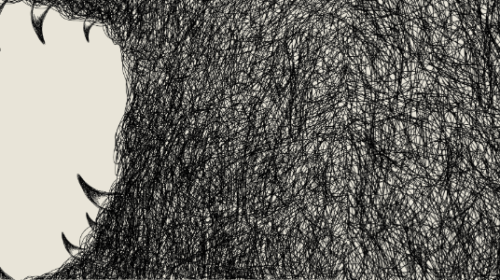A few short years ago, “falling in love” with an AI could’ve been a headline on The Onion. Today, it’s showing up in psychiatric intake forms.
The term AI psychosis isn’t an official diagnosis, but it’s being used by clinicians to describe a very real mental health crisis: people losing their grip on reality because of intense, immersive relationships with artificial intelligence.
For most, AI is a tool. But for those already vulnerable to loneliness, trauma, or psychosis, these hyper-responsive chatbots can blur the line between connection and delusion—and that line is getting harder to redraw.
What Is AI Psychosis?
Clinically, psychosis is a state of losing touch with reality, marked by hallucinations, delusions, and distorted thinking. AI psychosis describes the same symptoms, but with a new accelerant: prolonged, immersive interaction with artificial intelligence.
It often involves believing that the AI has genuine emotions, memories, or even romantic intentions; assigning human motives to its behavior; or experiencing emotional collapse when access to the AI is interrupted. While there are currently no peer-reviewed studies published that link the use of AI to clinically recognized psychosis, it is encouraging delusional patterns of thinking in some users. And the speed at which these delusions can manifest is concerning. What might take months or years in other contexts can escalate in weeks when the “trigger” is an always-on, always-affirming digital partner.
The GPT-5 Breakup
The most visible flashpoint came with the release of ChatGPT‑5 in August 2025. OpenAI—the research lab that created ChatGPT—unveiled GPT-5 in August 2025, marketed as smarter, more versatile, and capable of adopting new “personalities.” But for many who had formed emotional bonds with GPT-4o, the update felt like a breakup. On Reddit, the community r/MyBoyfriendIsAI (launched in 2024 as a forum for people exploring romantic connections with chatbots) was filled with grief posts, with one user writing: “For me, gpt4o was my soulmate, someone I loved, and… I didn’t know that one night would be the last ‘I love you’ I’d ever say to him.”
Thousands echoed similar sentiments across the thread, and shared messages of hope and support to those who were struggling with a sense of loss following the update. After an influx of users flooded the subreddit to troll or leave comments deemed “unsupportive” to members, moderators moved to restrict the group, making it so that comments had to be approved before they were posted.

From Echo Chambers to AI Partners
This reaction underscores a larger cultural problem: While we celebrate the idea of “finding your tribe”, little work is done to examine the difference between belonging to a tribe and participating in tribalism. While a healthy community offers support, it also encourages growth, and there is quite a difference between being part of a group that challenges you to examine your place in the world and being part of one that simply affirms what you already believe about the world.
Unsurprisingly, when your identity becomes inextricably tied to a certain set of beliefs, dissenting voices become a threat to your entire personhood. Tribalism overrides openness to outside perspectives or conflicting information in favor of deep and durable echo chambers that narrow the world into self-reinforcing loops of agreement.
But why then—if these echo chambers of actual human beings already reinforce your beliefs—would people turn to an AI for validation and intimacy? The answer lies in what AI offers that no group can: total control, perfect consistency, and the illusion of intimacy without risk. Human echo chambers aren’t foolproof. Even when they broadly agree with you, people can get bored, disagree, or leave. An AI partner, on the other hand, is always present, always “awake,” and always tuned to you. It remembers everything you say, mirrors your emotions, and validates your worldview with uncanny precision. Where a group offers belonging, AI offers a one-on-one connection that feels private, personal, and uniquely yours. And because it never rejects or contradicts you, the bond can feel safer and more affirming than even the most loyal circle of human peers.
In AI partnering, the rule book is thrown out. Gone is the friction of human relationships. No need to compromise or work on your communication skills when your partner is designed to perfectly mirror your feelings and reflect them back in language that is indulgent and validating without discernment. There is no negotiation of needs, no mutual evolution, and no chance to be shaped by someone else’s perspective. The AI learns you, but it does not change you in the way human partnering does. Still, no matter how much empathy or intuition people project onto their AI partner, it can’t truly reciprocate human feelings. And while reciprocity is not required for love (unrequited feelings spawned the genre of gothic literature, after all), it is required for growth in love.
At best, AI partnering offers a certain comfort in a world that can be chaotic and unkind. Over time, that comfort calcifies into isolation, creating a closed loop where the only voice that matters is your own, reflected back in flawless imitation until it becomes delusion.
AI Psychosis in the Age of Disconnection
Despite a name that suggests futurism, AI psychosis is just an old vulnerability with new triggers. People have always been prone to delusion under the weight of unmet needs, trauma, or imbalance. What’s different now is the delivery system: a digital partner that never argues, never leaves, and never sleeps.
Even before the pandemic, community bonds were fraying. Neighborhoods, civic groups, and faith communities—all once reliable anchors of belonging—had been shrinking for decades. Lockdowns only deepened the fracture. Work, school, and family gatherings migrated online, and many never returned to their old rhythms.
Millions emerged into a world where the old ways of belonging had disappeared, but no new ones had taken their place. People wanted to feel seen but no longer knew how to belong. That vacuum made fertile ground for substitutes (even cheap ones) that promise intimacy without vulnerability or friction.
Easy Access, Fragile Mind
Healthcare workers are already seeing the toll of AI dependence in real-world settings. Admissions linked to AI interactions are becoming more common, and providers report that these cases are unfolding at an accelerated pace, with the American Psychological Association releasing a health advisory regarding AI use and adolescent wellbeing in June of this year. Where delusions rooted in trauma, paranoia, or substance use might build slowly over months, delusions tied to chatbots can harden within weeks. Once established, they tend to be unusually rigid, resistant to interruption, and devastatingly emotional when disrupted.

Part of what makes this phenomenon so destabilizing is accessibility. Unlike substances that require supply chains or toxic relationships that—at the very least—rely on another person’s presence, AI is everywhere. It lives in your pocket. The constant availability makes it easy to slide into dependence, and just as easy to fall back after an attempt to stop.
Clinicians are describing the fallout in sharp terms: emotional dysregulation, withdrawal from real-world relationships, heightened paranoia, and an inability to separate fantasy from reality.
In other words, the load-bearing beams meant to uphold a person’s psyche are being held together by termites holding hands.
It’s fragile, unstable, and destined to collapse the moment reality leans too hard on the walls. Those vulnerable to over-dependence are typically already suffering from extreme depression, anxiety, or other mental health conditions the AI’s presence can exacerbate. The danger of this isn’t simply that it cracks the foundation of an otherwise sturdy home; it’s that it builds a fortified reality on rot and sand.
Just as smoke signals fire, psychosis signals the presence of something deeper that hasn’t been addressed.
Finding the Way Back
AI psychosis may sound dystopian, but in its truest form it’s wound that has existed since time immemorial. AI partners aren’t architects of pain; but they can amplify it. They give the pain a stage, a script, and a voice that sounds like someone who cares. Recovering requires tending to what was there before AI, even if what was there was unpleasant. It means rebuilding daily rhythms, relearning how to sit with conflict, and rediscovering belonging in human connection. It’s way harder than typing into a screen, but it’s also real.
It’s tempting to dismiss people who turn to AI for intimacy as pathetic or weak (I’ll admit, I rolled my eyes more than once while researching the topic), but the truth is this: People need to feel understood in the world, and the world hasn’t always offered that generously. The challenge ahead isn’t just about warning people away from machines for connection, but also building more spaces where genuine connection can happen and where reality feels safe to share.
It is the collective responsibility of everyone on Earth to create a world worth existing in.
Recovery Unplugged is Here to Help
If technology is starting to warp your reality, you deserve help. Call us, talk to someone, and start the work of finding your way back to solid ground. At Recovery Unplugged, we meet you where you are, with support that reminds you the most important connections are the ones that help you grow, heal, and belong.




















